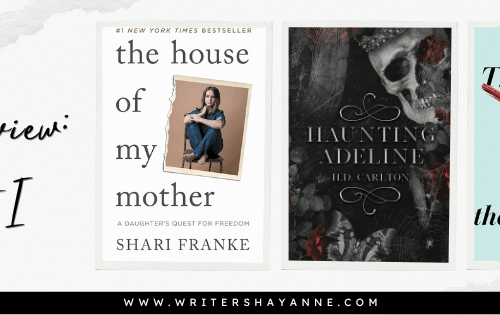
2025 : Book Review – Part II
How has it been three months since my last post? Time is hardly on my side, and the past weeks have been a blur of assignments, work, responsibilities, reset, and repeat. Thankfully, I’ve managed to squeeze in some time for reading, and I’ve finished more books than expected lately.
For part II of my 2025 book reviews, I’ve selected three novels that left a lasting, positive impression on me, and with October just around the corner, I’d recommend giving these a read to prepare for Halloween. Let’s dive in, shall we? 🎃
Come Closer
Come Closer by Sara Gran is a bone-chilling tale that will leave you flinching at the slightest sound and sleeping with the lights on. Originally published in 2003, this book is not for the faint of heart, and it is perhaps one of the most accurate accounts of demonic possession.
Our narrator, Amanda, is a successful architect in a loving marriage, but things start to go inexplicably awry when a crude memo is addressed to her boss under her name and a strange tapping fills the silence of her home, following her every move. Shopping sprees soon follow with kleptomania that spirals out of control, as well as an unnerving desire to harm her husband, and all of these seemingly harmless incidents mark the start of something far more sinister.
It is when Amanda dreams of a beautiful woman beside a blood-red sea that everything goes downhill.
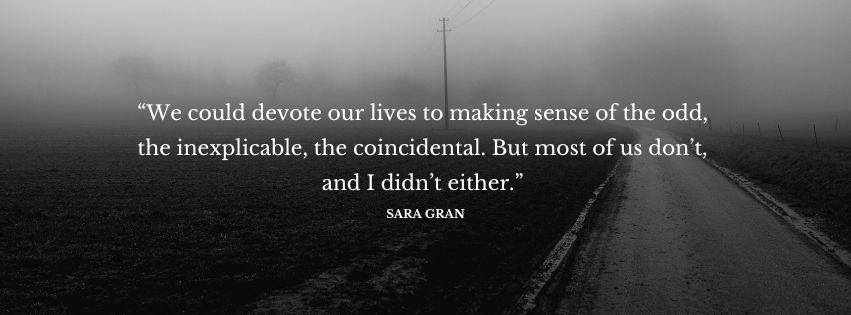
What I love about Come Closer is that none of these incidents happen overnight. Amanda’s descent is so gradual that even contemplating the existence of supernatural forces at play will make you feel as though you’re losing your mind—and therein lies Gran’s mastery.
Tragedy and horror go hand-in-hand here. After all, what could be more terrifying than losing your sense of agency? Is there a greater tragedy than seeking out help but failing to fight the darkness, only to have brief snatches of lucidity where you are forced to confront the consequences of demonic possession?
Gran’s depiction of possession is very different from the sensationalized versions of it that you see in the movies. It is not solely the flapping of arms and the high-pitched screams or raspy whispers of the victim as they writhe on the ground. Rather, it can be so subtle that you may not even realize that things are amiss until your life spirals out of control.
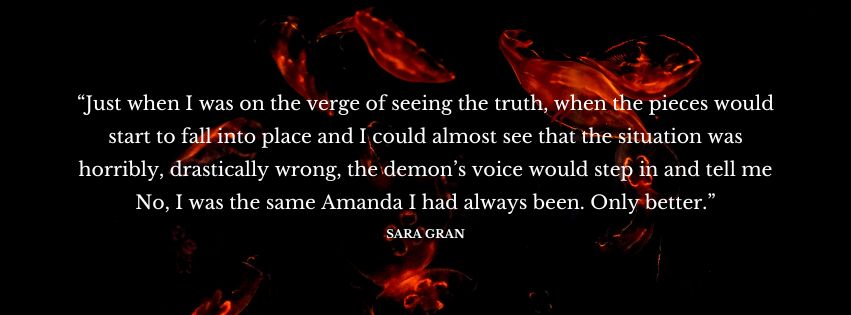
Come Closer has no happy ending; as the reader, you are powerless to intervene and provide Amanda with the advice she needs, and any hope for a better outcome is repeatedly crushed as the demon in her life prevails over all else.
Bearing this in mind, I can only recommend this book to those who either do not believe in the existence of demons or are religious enough to treat this as a cautionary tale and nothing more. Once it plants the seedling of fear in your mind, you may become paranoid and terrified, but if you’re willing to give it a try, it’ll definitely be worth your while.
The Push
Marketed as a book that tackles the “dark side of motherhood” (Kent, 2021), Ashley Audrain’s The Push is a psychological drama that caught my eye when I was on the lookout for realistic horror, or the kind that just doesn’t involve any ghosts or demons. Addressing topics like generational trauma, identity loss, and womanhood, this book is a brutal read that does not shy away from the side of motherhood that hardly anyone seems to ever talk about, lest they become a “bad” mother by society’s standards.
The Push begins with its narrator, Blythe, admiring her ex-husband’s new family from afar. In her possession is the manuscript of her life, detailing her side of the story from their first meeting and the birth of their first child to the very end of their marriage. It is this manuscript that forms the bulk of this story, interspersed with descriptions from the 1900s of her mother’s and grandmother’s lives. Interestingly enough, the three women become mothers when they are least prepared for it, and all of them are forced to embrace motherhood with hardly any support from those around them.
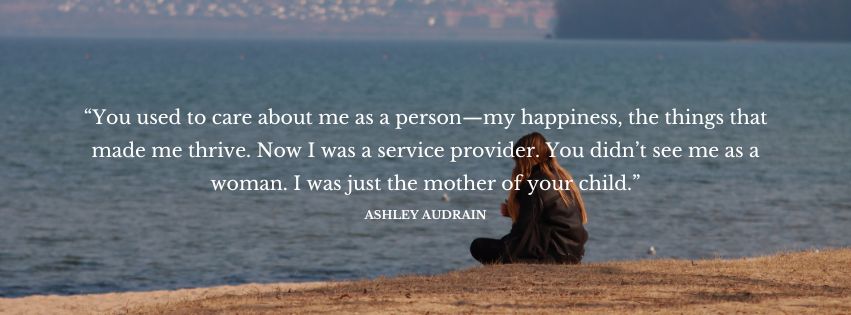
What makes Audrain’s novel so impressive is that it deconstructs the glorified image of motherhood with hard truths. From the sleepless nights and changes in her body that are beyond her control to the growing suspicion that something might be terribly wrong with her first child, Blythe grapples with the loss of her identity as a person, and her solace comes in the form of her second child, Sam. However, this isn’t meant to last, and when a terrible tragedy destroys the stability that Blythe works so hard to build, she becomes convinced that her daughter, Violet, isn’t as innocent as she seems.
While suspense builds at the turn of each page, it is only when you reach the end that the horror becomes much more apparent. Despite being an unreliable narrator, Blythe is not solely to blame for the breakdown of her marriage and the collapse of the family unit, and one would be heartless to cast the blame on her alone. Rather, it is the influence of the patriarchy that is to blame as Blythe, Cecilia (her mother), and Etta (her grandmother) are all victims of abuse.
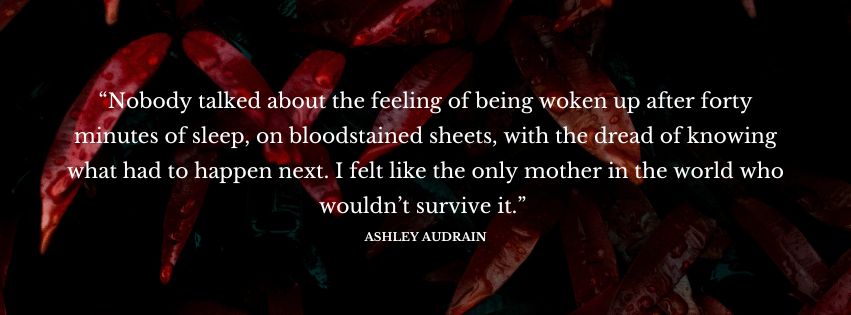
The Push does not necessarily have a happy ending, but it does offer some much-needed closure for Blythe as she embarks on a very difficult journey of healing. That being said, the last page will surprise you with a validating twist, so do give it a chance if you have a bit of time to spare.
As Meat Loves Salt
Where do I even begin? As Meat Loves Salt is violent and vicious, sensual and sultry, and so very unforgettable that it left me in shambles when I finished it in the dead of the night. Originally published in 2001, Maria McCann’s debut novel is a work of madness that explores the rise and fall of Jacob Cullen, a manservant who dons the armour of a soldier and marches into battle, spurred by dreams of a new life and a malicious voice that rears its ugly little head repeatedly.
Interestingly enough, the novel begins with a variant of an Italian fairytale, Water and Salt, in which a king tests his daughters’ love and sentences the youngest to death when she likens her love for him to water and salt. In McCann’s version, the youngest princess declares that she loves her father “as meat loves salt”, and it is only after the king loses his wealth and tastes a saltless roast that he understands gravity of the love he once scorned. This analogy recurs in the novel and it alludes to the grim conclusion that awaits us at the end.
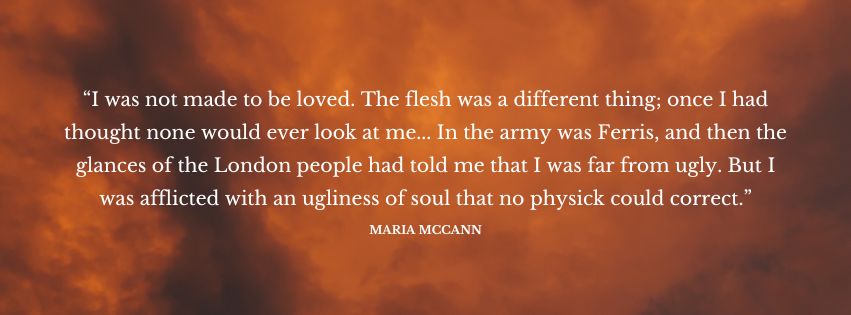
Our protagonist, Jacob, is difficult to describe. As a former noble, he dreams of greatness and often reminisces over past glories with his brothers, and at the start of the novel, he anticipates his betrothal to a maidservant named Caro. What ought to be a day of joy soon becomes one of endless horror as Jacob flees with Caro and his youngest brother, terrified that his crime of killing another man will come to light. Thus begins Jacob’s journey of madness and greatness that leads him across the war-torn landscape of 17th-century England and into the arms of a fellow soldier.
Much of this story is left to the reader’s imagination; Jacob is a terrible man who does terrible things, and you will be struck by how horrible he is when you revisit the earlier chapters with the knowledge you’ve gleaned from reading ahead. Despite this, you can’t help but root for him as he tries his best to become a better person, and each time he succumbs to evil and follows the voice in his mind, you feel anguish and anger at the recurring realization that he truly is doomed.
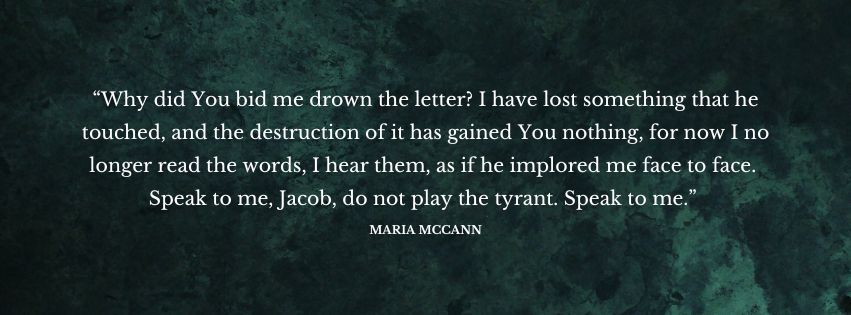
But what makes Jacob so compelling is that he is neither heartless nor ignorant of what is deemed socially acceptable. He commits heinous deeds in fits of anger and when he is chastised by those whom he holds dear to his heart, he immediately repents. It is in this that we see a very fascinating dichotomy between the violence that he possesses and the gentleness that he is capable of, so we sympathize with the inferiority that haunts him, making him believe that he is undeserving of love, and we agonize over the destruction that he wreaks, all the while being tormented by one question—is the voice in his head truly his or is it perhaps a figment of his imagination?
Final Thoughts
Funnily enough, these three novels were all written in the first-person point of view—a fact that I realized only after I sat in front of my laptop to type this review. Come Closer, The Push, and As Meat Loves Salt are all examples of masterful writing when this style of narrative is done right, and the dread that I felt with the turn of each page left me teetering on the edge of insanity.
Truth be told, I felt as though these books had me cycling through the stages of grief. I even sent my friends this meme to express just how frustrated I was with Jacob Cullen while reading As Meat Loves Salt.
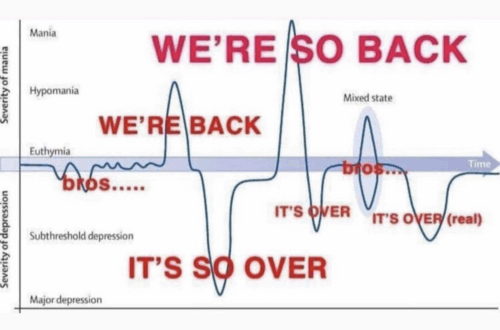
The anguish I felt while reading was certainly a testament to the prowess of Gran, Audrain, and McCann, so I wholeheartedly recommend these books to everyone—even to those who wish to try the first-person narration. Lastly, I hope this simple review convinces you to give these books a try because you may find another addition to your top 10 reads of all time.
Support the authors by reading these books using the links below:


You May Also Like

Of Narration, Subplots and Unsatisfactory Endings – A Review of My Sister’s Keeper by Jodi Picoult
November 26, 2024